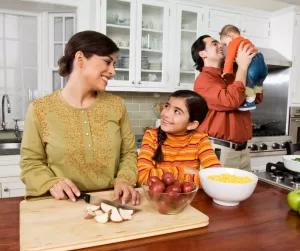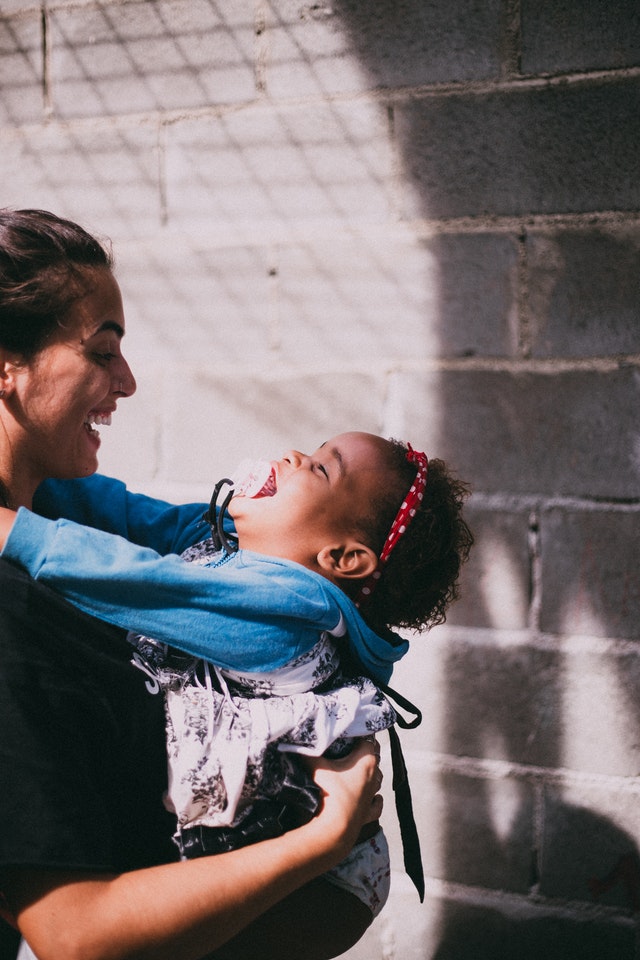
How do you think your kids experience you? Do they expect loving, positive attention and trust or criticism and judgement? Or no attention at all until they cause a problem? Watch yourself and see what they respond to.
Whenever you yell, threaten, punish, or use that blaming tone that turns your child “parent deaf”, you are teaching your children that they are a problem—because you see them as a problem. What you want is the problem to end, but what you are focusing on—what your child is doing wrong—makes the problem worse.
What you want to grow is your child’s capability.
So trust your child’s capability to overcome problems. This requires a mindset shift and understanding what trust really means. Your trust is needed 24/7, especially if your child is behaving in untrustworthy ways.
It’s not about trusting behavior or even your child’s current motivations. It’s about trusting who your child is and that he wants to do things right. The fact that things are going wrong can be corrected by your change in focus.








 As far as I can tell, most parents want their children to reach launch-age fully capable of conducting their lives with responsibility and respect. When they leave the safety of their nests with self-confidence, feeling competent and resilient, with the drive to contribute positively to the world, they are ready to greet whatever comes at them. We want our children to go out into the world capable of finding success yet able to weather the bumps and storms with a strong sense of self.
As far as I can tell, most parents want their children to reach launch-age fully capable of conducting their lives with responsibility and respect. When they leave the safety of their nests with self-confidence, feeling competent and resilient, with the drive to contribute positively to the world, they are ready to greet whatever comes at them. We want our children to go out into the world capable of finding success yet able to weather the bumps and storms with a strong sense of self. Boundaries refer to the separation of responsibilities between me and my child. Limits refer to what behaviors I am ok with and what I am not. To have appropriate limits, it is essential to establish healthy boundaries.
Boundaries refer to the separation of responsibilities between me and my child. Limits refer to what behaviors I am ok with and what I am not. To have appropriate limits, it is essential to establish healthy boundaries. If you want your children to become respectful, responsible people, you must model that behavior. With poor boundaries, this is hard to do.
If you want your children to become respectful, responsible people, you must model that behavior. With poor boundaries, this is hard to do.
 As we know, children mirror us, watching everything we do and imitating both our best and worst behaviors.
As we know, children mirror us, watching everything we do and imitating both our best and worst behaviors. 
 I hate the word chores, and I can guarantee your kids do too. Asking kids to do chores is like saying I want you to take on this drudgery, this burden. And then when the expectation is that they should do them willingly because of all you do for them—that’s a catastrophe waiting to happen.
I hate the word chores, and I can guarantee your kids do too. Asking kids to do chores is like saying I want you to take on this drudgery, this burden. And then when the expectation is that they should do them willingly because of all you do for them—that’s a catastrophe waiting to happen. Third, set your expectations of yourself appropriately. Expect that from a very young age, your children are going to do tasks to be helpful. Just don’t expect
Third, set your expectations of yourself appropriately. Expect that from a very young age, your children are going to do tasks to be helpful. Just don’t expect 